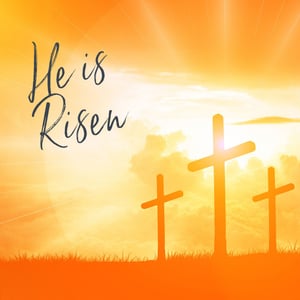 You start reading today’s Gospel, beginning with that most famous and recognizable of New Testament verses, and you nod along, feeling warm and fuzzy inside. And then, suddenly, Jesus is challenging you. “Is he talking to me?” you ask yourself. (The answer to this is always yes.) It’s uncomfortable.
You start reading today’s Gospel, beginning with that most famous and recognizable of New Testament verses, and you nod along, feeling warm and fuzzy inside. And then, suddenly, Jesus is challenging you. “Is he talking to me?” you ask yourself. (The answer to this is always yes.) It’s uncomfortable.
That’s a good place to be. Let’s sit in that discomfort for a minute.
There was a kids’ show in the ‘90s called Are You Afraid of the Dark? Well, here Jesus is asking us: Are you afraid of the light?
And if we’re honest, our answer is, “Yes!” Jesus says as much. His comments are directed at “people,” in general, and “everyone who does wicked things” especially—in other words, me. And you.
In the light, our works are exposed. People laugh at us. They condemn us. They know us to be frauds and hypocrites.
But here’s the key thing to notice: Those worries aren’t about God.
Jesus’s metaphor—for lack of a better word—about light in this passage isn’t about what the light does for God. He can see us anyway. “For darkness is as light to you,” Psalm 139 tells us. We don’t want to be exposed, but we’re already exposed before God. We fear being condemned, but this is the same Jesus who, five short chapters from now, will tell the woman caught in adultery that he doesn’t condemn her (even though, by his own rules, his sinlessness would justify him in throwing stones).
Jesus begins this whole passage by reiterating that he didn’t come to condemn us, and he must mean it.
No, all this talk about light and what it reveals is about us. It’s about integrity. It’s a chance to do a gut check—what do I count on the darkness to conceal? But it’s also a trust exercise—whose condemnation am I fearing?
The value of integrity is not that others respond well to it. They often don’t. But we shouldn’t confuse the condemnation of the world for the condemnation of God.
When we live in integrity, we admit that the light is going to show some unflattering things, but we choose to live there anyway because that’s where God is. Jesus calls Christians to welcome the light not because we suddenly lack things we’d rather hide. He asks us to choose to be our fully lit selves, to “live the truth” and do our works “in God,” because in that decision, we are choosing to have faith in the God who created those selves and who is Truth and is Light.
So here’s your homework: Go outside. Sit in the sun. Just sit. Be alone. Be warm. Be in your body. Close your eyes. Open your lungs.
That’s the feeling when you step out into the Light.
Now try it with your soul.



